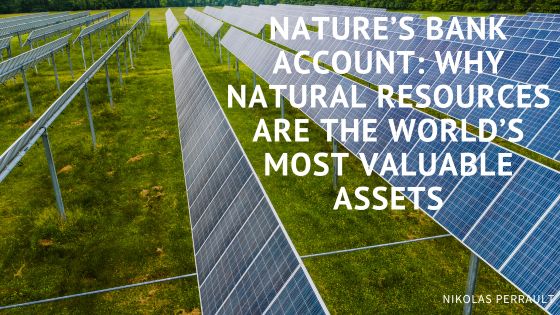When we talk about wealth, we often think in terms of money, stocks, or even real estate. But the most valuable assets on Earth aren’t found in a spreadsheet—they’re found in the ground, in our forests, our oceans, and our skies. Natural resources are the original currency of civilization, and their importance has only grown in the face of climate change, overconsumption, and a rapidly expanding global population.
Natural resources include everything from fossil fuels (oil, coal, natural gas) to renewable assets like forests, freshwater, and sunlight. These are the raw materials that power our economies, sustain our food systems, and literally keep us alive. But as we continue to withdraw from this “bank account” of nature without reinvesting, the balance is quickly depleting.
One of the most pressing challenges is the overexploitation of non-renewable resources. Fossil fuels, for instance, have driven industrialization and modern comforts—but at a steep environmental cost. Air pollution, oil spills, and carbon emissions are just a few of the side effects of our dependency. As reserves dwindle and climate consequences mount, the urgency to shift to sustainable alternatives becomes unavoidable.
Water is another critical but increasingly scarce resource. Despite covering 70% of the planet, only about 1% of Earth’s water is accessible and drinkable. Population growth, agricultural demand, and pollution are placing immense strain on freshwater systems. In some regions, water scarcity has already led to conflict and displacement, highlighting the geopolitical weight of this vital resource.
Forests, often called the “lungs of the planet,” are being cleared at alarming rates. Deforestation not only contributes to biodiversity loss but also releases massive amounts of stored carbon into the atmosphere, accelerating global warming. Protecting these ecosystems isn’t just about preserving beauty or wildlife—it’s about maintaining global climate stability.
On the brighter side, the rise of renewable energy offers hope. Solar, wind, hydro, and geothermal power are transforming how we harness nature’s energy without depleting it. Countries investing in renewables are not only reducing their carbon footprint but also creating jobs and improving energy security.
Sustainable management of natural resources isn’t a luxury—it’s a necessity. Governments, businesses, and individuals all play a role. Policies that protect land, water, and air must be prioritized. Businesses must adopt circular economies that minimize waste and reuse materials. And we, as consumers, can support eco-conscious brands, reduce our energy consumption, and advocate for change.
Ultimately, treating natural resources as finite and precious is the first step toward a more balanced and resilient future. The Earth has given us everything we need—but it’s up to us to manage it wisely. After all, a bankrupt planet benefits no one. Let’s start reinvesting in the one bank account we all share: nature.
